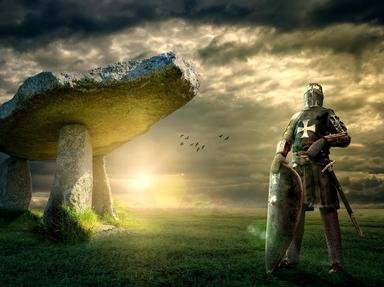
Who's Who: Mythological Pairs Trivia Quiz
In mythology there are many pairs of people who are associated together - fathers and sons, siblings, couples, friends, and the like. See if you can correctly match the ones most likely to be in the same story!
A matching quiz
by ponycargirl.
Estimated time: 3 mins.